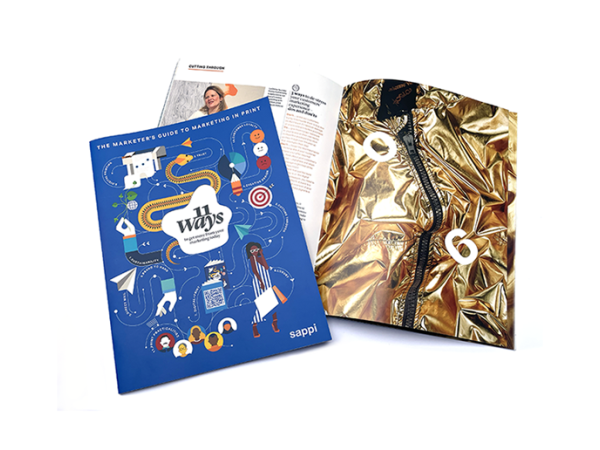Consumer-Driven Content – How To Build A Media Mix That Works For You
Every successful campaign starts and ends with the audience – on understanding expectations and delivering on them.

Consumers have always sought basics such as a fair price and decent service, but today’s consumers have added expectations – such as proactive service, personalised interactions and connected experiences across channels.
Don’t think you automatically know the score
The first thing to remember is not to make assumptions about your audience. In this day and age, with so much personal data being generated from your customers and customers like them, there’s no need. Data analysis and testing are sharper, better ways to start to understand your consumers today.
But it’s still easy to fall into the trap of creating off-key customer experiences based on off-centre assumptions.
For example, marketers often assume that younger generations have no time for or interest in print, simply because of how long they spend on their smartphones. But data tells a different story.
According to MNI, Millennials read 8.9 magazines per month – hardly less than Gen X-ers at 9.1 and Baby Boomers at 9.2.
Meanwhile, Gen Z-ers spend more time reading physical newspapers and magazines without interruption than they do on social media, websites and blogs
As marketers, we have to get the customer experience right – after all, 57% of customers stop buying from a company when a competitor provides a better experience.
So, be directed by your target audience and not by your preconceptions about them – not least when it comes to their channel preferences and habits.

Make the most of a complementary mix of channels
We may be living in a digital world, but the data still shows that print very much has its place. Some key JICMAIL stats highlight how print marketing cuts through the noise of other channels:
· 80% of adults open all mail
· 91% engage with mail
· 87% think that mail can be trusted
Digital can’t compete with print on open rates and trust. But good marketing isn’t about digital versus print – it’s about finding an effective marketing mix that maximises the benefits of both online and offline media.
It’s about choosing the right media for the right stage of the customer lifecycle. After all, there are good reasons why 38% of people buy something as a result of receiving printed direct mail.
Our online and offline worlds are constantly interacting with each other as consumers move between the two to make purchasing decisions. And marketers can make the most of that.
Visual communication technologies can now be seamlessly integrated into traditional media. That’s why QR codes regularly turn up on magazine ads, billboards and food packaging – driving consumers successfully engaged with print into an online interaction.
Even without such technologies, there remains a simple, direct relationship between print and digital – after viewing a physical ad, readers become consumers naturally as they move online to purchase.
A study by Newsworks reveals how marketers can amplify their efforts by recognising how digital and print work in tandem. Measuring five campaigns across the print and digital platforms of news brands, the study found that print-plus-digital strategies were the most efficient – provoking a 17% uplift in brand health metrics.

Pick your message and your moment
Through audience analysis and A/B testing, smart marketers can start to understand what messages resonate in which formats and, ultimately, how each channel can be utilised to its full effect.
And let’s not forget print’s special place in delivering poignant and sincere communication, as well as those targeted, serendipitous messages that find their audience in just the right mood and moment.
How could print help maximise your marketing mix?



